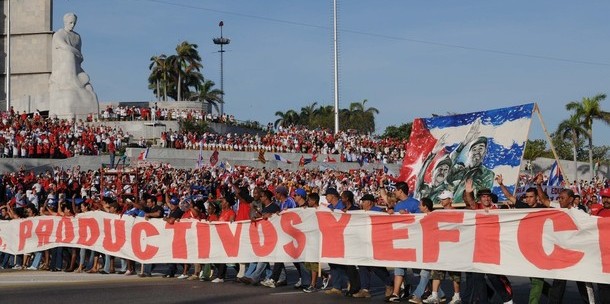
Cuban President Raúl Castro has called the sixth-ever Communist Party congress—the first in thirteen years—to be held this coming April 2011 (when it will coincide with the anniversary of the battle of the Bay of Pigs, a complementary source of Cuban patriotism). So what can we expect from this congress? And what should we not expect?
In fact, the sole item on the agenda for the congress is a strategic reorientation of the Cuban economic model; such a singular agenda indicates broad recognition of the importance of economic reform to the island’s future. The Cuban government has circulated a five-year economic reform plan that can be expected to gain approval and ratification during the April meeting, and which emphasizes that preserving socialism on the island will be dependent upon opening the economy to more market incentives and non-state activities. This means greater levels of self-employment, but it also means that state and non-state actors will be more broadly able to determine production plans, resource allocation, financing and overall decision-making, all of which are now mostly determined by the state. These more active state roles in their activities will be replaced in favor of regulation and close monitoring.
But the 30-page document does not go into specifics, and without a particular path to follow, ratification in April will not mean swift nor coherent implementation of the plan’s tenets subsequently. Thus far we’ve only seen isolated, stop-and-go implementation of economic reforms in Cuba: greater consumer goods freedoms a few years ago, amendments to ration books last year, encouraged selective entrepreneurialism earlier this year, and the more recent broad state layoffs of redundant workers. We have little indication of how a large-scale transformation of the economy would look, and this new up-for-ratification document describing “guidelines for economic and social policy” does not provide blueprints.
We might have also expected that this first Party congress in thirteen years would address the issue of leadership succession, as Party leadership is the remaining official function Fidel has not formally passed to Raúl. Furthermore, many of the highest posts in the Party are held by individuals in their 70s and 80s, and this generational challenge cries out to be addressed. But questions of political leadership will be tabled for perhaps later in the year; this congress will cover only the economy. This underscores the fact that any planned and/or ratified economic changes cannot be mistaken for political changes, and this will not likely be lost on the Obama administration nor the hard-liners in the U.S. Congress.
(Photo credit: STR/AFP/Getty Images)